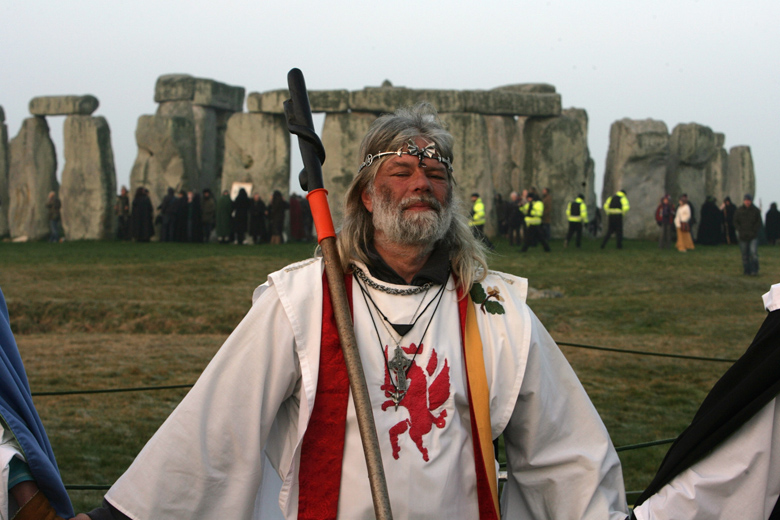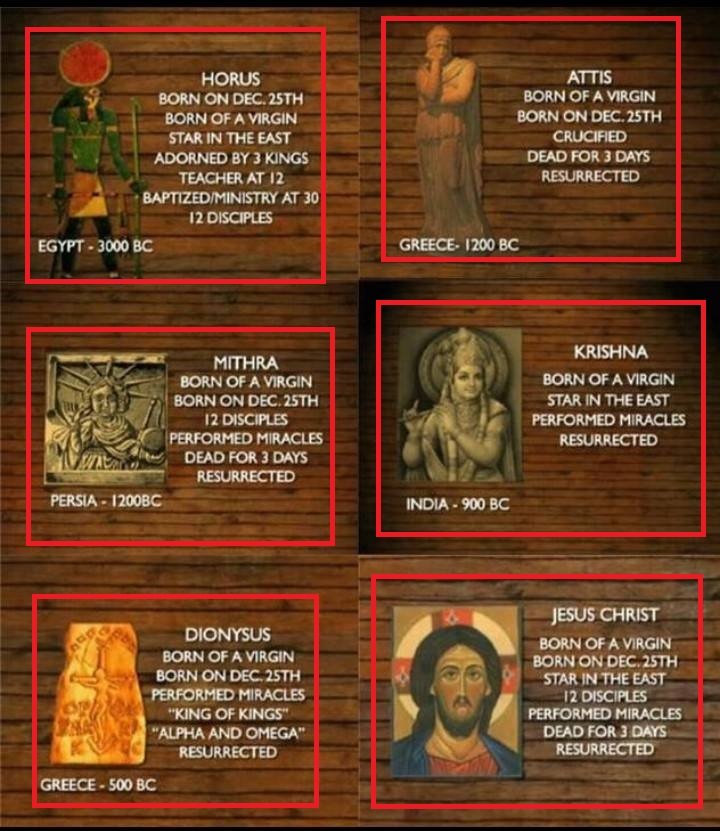𝐓𝐡𝐞 𝐏𝐚𝐠𝐚𝐧 𝐑𝐨𝐨𝐭𝐬 𝐨𝐟 𝐆𝐨𝐨𝐝 𝐅𝐫𝐢𝐝𝐚𝐲
Mohamad Mostafa Nassar
Twitter:@NassarMohamadMR
𝐓𝐨𝐝𝐚𝐲 𝐢𝐬 𝐆𝐨𝐨𝐝 𝐅𝐫𝐢𝐝𝐚𝐲, 𝐰𝐡𝐞𝐫𝐞 𝐂𝐡𝐫𝐢𝐬𝐭𝐢𝐚𝐧𝐬 𝐭𝐡𝐞 𝐰𝐨𝐫𝐥𝐝 𝐨𝐯𝐞𝐫 𝐜𝐨𝐦𝐦𝐞𝐦𝐨𝐫𝐚𝐭𝐞 𝐭𝐡𝐞 𝐜𝐫𝐮𝐜𝐢𝐟𝐢𝐱𝐢𝐨𝐧 𝐨𝐟 𝐉𝐞𝐬𝐮𝐬 𝐂𝐡𝐫𝐢𝐬𝐭 𝐚𝐭 𝐂𝐚𝐥𝐯𝐚𝐫𝐲. 𝐈𝐭 𝐢𝐬 𝐚𝐥𝐬𝐨 𝐤𝐧𝐨𝐰𝐧 𝐚𝐬 𝐇𝐨𝐥𝐲 𝐅𝐫𝐢𝐝𝐚𝐲, 𝐆𝐫𝐞𝐚𝐭 𝐅𝐫𝐢𝐝𝐚𝐲, 𝐨𝐫 𝐁𝐥𝐚𝐜𝐤 𝐅𝐫𝐢𝐝𝐚𝐲 𝐚𝐧𝐝 𝐜𝐨𝐦𝐞𝐬 𝐭𝐡𝐞 𝐅𝐫𝐢𝐝𝐚𝐲 𝐛𝐞𝐟𝐨𝐫𝐞 𝐄𝐚𝐬𝐭𝐞𝐫. 𝐓𝐡𝐞 𝐝𝐚𝐭𝐞 𝐨𝐟 𝐄𝐚𝐬𝐭𝐞𝐫 𝐢𝐬 𝐚𝐥𝐰𝐚𝐲𝐬 𝐭𝐡𝐞 𝐟𝐢𝐫𝐬𝐭 𝐒𝐮𝐧𝐝𝐚𝐲 𝐚𝐟𝐭𝐞𝐫 𝐭𝐡𝐞 𝐟𝐮𝐥𝐥 𝐦𝐨𝐨𝐧 𝐟𝐨𝐥𝐥𝐨𝐰𝐢𝐧𝐠 𝐚 𝐬𝐩𝐫𝐢𝐧𝐠 𝐞𝐪𝐮𝐢𝐧𝐨𝐱. 𝐓𝐡𝐢𝐬 𝐲𝐞𝐚𝐫, 𝐄𝐚𝐬𝐭𝐞𝐫 𝐢𝐬 𝐨𝐧 𝐒𝐮𝐧𝐝𝐚𝐲, 𝐀𝐩𝐫𝐢𝐥 𝟏𝟔.
𝐆𝐨𝐨𝐝 𝐅𝐫𝐢𝐝𝐚𝐲 𝐜𝐨𝐦𝐞𝐬 𝐚𝐟𝐭𝐞𝐫 𝐌𝐚𝐮𝐧𝐝𝐲 𝐓𝐡𝐮𝐫𝐬𝐝𝐚𝐲 𝐨𝐫 𝐇𝐨𝐥𝐲 𝐓𝐡𝐮𝐫𝐬𝐝𝐚𝐲. 𝐌𝐚𝐮𝐧𝐝𝐲 𝐓𝐡𝐮𝐫𝐬𝐝𝐚𝐲 𝐜𝐨𝐦𝐦𝐞𝐦𝐨𝐫𝐚𝐭𝐞𝐬 𝐭𝐡𝐞 𝐋𝐚𝐬𝐭 𝐒𝐮𝐩𝐩𝐞𝐫 𝐉𝐞𝐬𝐮𝐬 𝐡𝐚𝐝 𝐰𝐢𝐭𝐡 𝐡𝐢𝐬 𝐝𝐢𝐬𝐜𝐢𝐩𝐥𝐞𝐬 𝐰𝐡𝐞𝐫𝐞 𝐡𝐞 𝐰𝐚𝐬𝐡𝐞𝐝 𝐭𝐡𝐞𝐢𝐫 𝐟𝐞𝐞𝐭.
𝐁𝐨𝐭𝐡 𝐌𝐚𝐮𝐧𝐝𝐲 𝐓𝐡𝐮𝐫𝐬𝐝𝐚𝐲 𝐚𝐧𝐝 𝐆𝐨𝐨𝐝 𝐅𝐫𝐢𝐝𝐚𝐲 𝐚𝐫𝐞 𝐡𝐞𝐥𝐝 𝐨𝐧 𝐨𝐮𝐫 𝐚𝐫𝐨𝐮𝐧𝐝 𝐭𝐡𝐞 𝐰𝐞𝐞𝐤-𝐥𝐨𝐧𝐠 𝐉𝐞𝐰𝐢𝐬𝐡 𝐟𝐞𝐬𝐭𝐢𝐯𝐚𝐥 𝐨𝐟 𝐏𝐚𝐬𝐬𝐨𝐯𝐞𝐫.
𝐈𝐧 𝐭𝐡𝐫𝐞𝐞 𝐨𝐮𝐭 𝐨𝐟 𝐭𝐡𝐞 𝐟𝐨𝐮𝐫 𝐜𝐚𝐧𝐨𝐧𝐢𝐜𝐚𝐥 𝐠𝐨𝐬𝐩𝐞𝐥𝐬, (𝐌𝐚𝐭𝐭𝐡𝐞𝐰, 𝐌𝐚𝐫𝐤, 𝐚𝐧𝐝 𝐋𝐮𝐤𝐞), 𝐢𝐭 𝐢𝐬 𝐰𝐫𝐢𝐭𝐭𝐞𝐧 𝐭𝐡𝐚𝐭 𝐉𝐞𝐬𝐮𝐬’ 𝐋𝐚𝐬𝐭 𝐒𝐮𝐩𝐩𝐞𝐫 𝐨𝐜𝐜𝐮𝐫𝐫𝐞𝐝 “𝐨𝐧 𝐭𝐡𝐞 𝐟𝐢𝐫𝐬𝐭 𝐝𝐚𝐲 𝐨𝐟 𝐭𝐡𝐞 𝐅𝐞𝐬𝐭𝐢𝐯𝐚𝐥 𝐨𝐟 𝐔𝐧𝐥𝐞𝐚𝐯𝐞𝐧𝐞𝐝 𝐁𝐫𝐞𝐚𝐝, 𝐰𝐡𝐞𝐧 𝐢𝐭 𝐰𝐚𝐬 𝐜𝐮𝐬𝐭𝐨𝐦𝐚𝐫𝐲 𝐭𝐨 𝐬𝐚𝐜𝐫𝐢𝐟𝐢𝐜𝐞 𝐭𝐡𝐞 𝐏𝐚𝐬𝐬𝐨𝐯𝐞𝐫 𝐥𝐚𝐦𝐛,” 𝐚𝐜𝐜𝐨𝐫𝐝𝐢𝐧𝐠 𝐭𝐨 𝐌𝐚𝐫𝐤 𝟏𝟒:𝟏𝟐. 𝐓𝐡𝐞 𝐅𝐞𝐬𝐭𝐢𝐯𝐚𝐥 𝐨𝐟 𝐔𝐧𝐥𝐞𝐚𝐯𝐞𝐧𝐞𝐝 𝐁𝐫𝐞𝐚𝐝 𝐢𝐬 𝐚𝐥𝐬𝐨 𝐤𝐧𝐨𝐰𝐧 𝐚𝐬 𝐏𝐚𝐬𝐬𝐨𝐯𝐞𝐫.
𝐏𝐚𝐬𝐬𝐨𝐯𝐞𝐫 𝐢𝐬 𝐚 𝐰𝐞𝐞𝐤-𝐥𝐨𝐧𝐠 𝐉𝐞𝐰𝐢𝐬𝐡 𝐟𝐞𝐬𝐭𝐢𝐯𝐚𝐥 𝐭𝐡𝐚𝐭 𝐜𝐨𝐦𝐦𝐞𝐦𝐨𝐫𝐚𝐭𝐞𝐬 𝐭𝐡𝐞 𝐞𝐦𝐚𝐧𝐜𝐢𝐩𝐚𝐭𝐢𝐨𝐧 𝐨𝐟 𝐭𝐡𝐞 𝐈𝐬𝐫𝐚𝐞𝐥𝐢𝐭𝐞𝐬 𝐛𝐲 𝐆𝐨𝐝 𝐟𝐫𝐨𝐦 𝐬𝐥𝐚𝐯𝐞𝐫𝐲 𝐢𝐧 𝐚𝐧𝐜𝐢𝐞𝐧𝐭 𝐄𝐠𝐲𝐩𝐭. 𝐓𝐡𝐞 𝐬𝐭𝐨𝐫𝐲 𝐨𝐟 𝐭𝐡𝐞 𝐄𝐱𝐨𝐝𝐮𝐬 𝐢𝐬 𝐝𝐞𝐬𝐜𝐫𝐢𝐛𝐞𝐝 𝐢𝐧 𝐭𝐡𝐞 𝐇𝐞𝐛𝐫𝐞𝐰 𝐁𝐢𝐛𝐥𝐞, 𝐞𝐬𝐩𝐞𝐜𝐢𝐚𝐥𝐥𝐲 𝐢𝐧 𝐭𝐡𝐞 𝐁𝐨𝐨𝐤 𝐨𝐟 𝐄𝐱𝐨𝐝𝐮𝐬. 𝐈𝐧 𝐭𝐡𝐞 𝐁𝐨𝐨𝐤 𝐨𝐟 𝐄𝐱𝐨𝐝𝐮𝐬, 𝐌𝐨𝐬𝐞𝐬 𝐥𝐞𝐚𝐝𝐬 𝐭𝐡𝐞 𝐈𝐬𝐫𝐚𝐞𝐥𝐢𝐭𝐞𝐬 𝐚𝐜𝐫𝐨𝐬𝐬 𝐭𝐡𝐞 𝐑𝐞𝐝 𝐒𝐞𝐚 𝐚𝐧𝐝 𝐭𝐡𝐫𝐨𝐮𝐠𝐡 𝐭𝐡𝐞 𝐝𝐞𝐬𝐞𝐫𝐭𝐬 𝐭𝐨 𝐌𝐨𝐮𝐧𝐭 𝐒𝐢𝐧𝐚𝐢, 𝐰𝐡𝐞𝐫𝐞 𝐆𝐨𝐝 𝐩𝐫𝐨𝐦𝐢𝐬𝐞𝐬 𝐭𝐡𝐞𝐦 𝐭𝐡𝐞 𝐥𝐚𝐧𝐝 𝐨𝐟 𝐂𝐚𝐧𝐚𝐚𝐧 𝐚𝐬 𝐭𝐡𝐚𝐧𝐤𝐬 𝐟𝐨𝐫 𝐭𝐡𝐞𝐢𝐫 𝐟𝐚𝐢𝐭𝐡𝐟𝐮𝐥𝐧𝐞𝐬𝐬.
𝐓𝐡𝐞𝐫𝐞 𝐚𝐫𝐞 𝐦𝐚𝐧𝐲 𝐬𝐢𝐦𝐢𝐥𝐚𝐫𝐢𝐭𝐢𝐞𝐬 𝐛𝐞𝐭𝐰𝐞𝐞𝐧 𝐭𝐡𝐞 𝐬𝐭𝐨𝐫𝐢𝐞𝐬 𝐨𝐟 𝐌𝐨𝐬𝐞𝐬 𝐚𝐧𝐝 𝐉𝐞𝐬𝐮𝐬.
𝐋𝐞𝐚𝐫𝐧 𝐦𝐨𝐫𝐞 𝐚𝐛𝐨𝐮𝐭 𝐭𝐡𝐞 𝐡𝐢𝐬𝐭𝐨𝐫𝐲 𝐚𝐧𝐝 𝐨𝐫𝐢𝐠𝐢𝐧𝐬 𝐨𝐟 𝐆𝐨𝐨𝐝 𝐅𝐫𝐢𝐝𝐚𝐲 𝐡𝐞𝐫𝐞!
𝟏. 𝐈𝐭 𝐇𝐚𝐬 𝐏𝐚𝐠𝐚𝐧 𝐎𝐫𝐢𝐠𝐢𝐧𝐬

𝐀𝐫𝐭𝐡𝐮𝐫 𝐔𝐭𝐡𝐞𝐫 𝐏𝐞𝐧𝐝𝐫𝐚𝐠𝐨𝐧, 𝐚 𝐝𝐫𝐮𝐢𝐝, 𝐰𝐚𝐢𝐭𝐬 𝐟𝐨𝐫 𝐭𝐡𝐞 𝐬𝐮𝐧 𝐭𝐨 𝐫𝐢𝐬𝐞 𝐚𝐬 𝐡𝐞 𝐜𝐞𝐥𝐞𝐛𝐫𝐚𝐭𝐞𝐬 𝐭𝐡𝐞 𝐒𝐩𝐫𝐢𝐧𝐠 𝐄𝐪𝐮𝐢𝐧𝐨𝐱 𝐚𝐭 𝐒𝐭𝐨𝐧𝐞𝐡𝐞𝐧𝐠𝐞 𝐨𝐧 𝐌𝐚𝐫𝐜𝐡 𝟐𝟎 𝟐𝟎𝟎𝟗 𝐧𝐞𝐚𝐫 𝐀𝐦𝐞𝐬𝐛𝐮𝐫𝐲, 𝐖𝐢𝐥𝐭𝐬𝐡𝐢𝐫𝐞, 𝐄𝐧𝐠𝐥𝐚𝐧𝐝. (𝐌𝐚𝐭𝐭 𝐂𝐚𝐫𝐝𝐲/𝐆𝐞𝐭𝐭𝐲 𝐈𝐦𝐚𝐠𝐞𝐬)
𝐏𝐫𝐢𝐨𝐫 𝐭𝐨 𝐂𝐡𝐫𝐢𝐬𝐭𝐢𝐚𝐧𝐢𝐭𝐲, 𝐦𝐚𝐧𝐲 𝐚𝐧𝐜𝐢𝐞𝐧𝐭 𝐫𝐞𝐥𝐢𝐠𝐢𝐨𝐧𝐬 𝐡𝐚𝐝 𝐦𝐲𝐭𝐡𝐬 𝐚𝐧𝐝 𝐥𝐞𝐠𝐞𝐧𝐝𝐬 𝐚𝐛𝐨𝐮𝐭 𝐭𝐡𝐞 𝐝𝐞𝐚𝐭𝐡 𝐚𝐧𝐝 𝐫𝐞𝐛𝐢𝐫𝐭𝐡 𝐨𝐟 𝐠𝐨𝐝𝐬 𝐚𝐧𝐝 𝐠𝐨𝐝𝐝𝐞𝐬𝐬𝐞𝐬. 𝐂𝐞𝐥𝐞𝐛𝐫𝐚𝐭𝐢𝐨𝐧𝐬 𝐨𝐟 𝐭𝐡𝐞𝐬𝐞 𝐠𝐨𝐝𝐬 𝐮𝐬𝐮𝐚𝐥𝐥𝐲 𝐨𝐜𝐜𝐮𝐫𝐫𝐞𝐝 𝐢𝐧 𝐭𝐡𝐞 𝐬𝐩𝐫𝐢𝐧𝐠𝐭𝐢𝐦𝐞.
𝐇𝐢𝐥𝐚𝐫𝐢𝐚 𝐰𝐚𝐬 𝐭𝐡𝐞 𝐚𝐧𝐜𝐢𝐞𝐧𝐭 𝐑𝐨𝐦𝐚𝐧 𝐫𝐞𝐥𝐢𝐠𝐢𝐨𝐮𝐬 𝐟𝐞𝐬𝐭𝐢𝐯𝐚𝐥 𝐜𝐞𝐥𝐞𝐛𝐫𝐚𝐭𝐞𝐝 𝐨𝐧 𝐭𝐡𝐞 𝐌𝐚𝐫𝐜𝐡 𝐞𝐪𝐮𝐢𝐧𝐨𝐱 𝐭𝐨 𝐡𝐨𝐧𝐨𝐫 𝐂𝐲𝐛𝐞𝐥𝐞, 𝐭𝐡𝐞 𝐦𝐨𝐭𝐡𝐞𝐫 𝐠𝐨𝐝𝐝𝐞𝐬𝐬, 𝐚𝐧𝐝 𝐡𝐞𝐫 𝐬𝐨𝐧/𝐥𝐨𝐯𝐞𝐫, 𝐀𝐭𝐭𝐢𝐬. 𝐀𝐭𝐭𝐢𝐬 𝐜𝐨𝐦𝐦𝐢𝐭𝐭𝐞𝐝 𝐬𝐮𝐢𝐜𝐢𝐝𝐞 𝐛𝐲 𝐜𝐚𝐬𝐭𝐫𝐚𝐭𝐢𝐧𝐠 𝐡𝐢𝐦𝐬𝐞𝐥𝐟 𝐫𝐢𝐠𝐡𝐭 𝐛𝐞𝐟𝐨𝐫𝐞 𝐡𝐢𝐬 𝐰𝐞𝐝𝐝𝐢𝐧𝐠 𝐭𝐨 𝐬𝐨𝐦𝐞𝐨𝐧𝐞 𝐞𝐥𝐬𝐞. 𝐂𝐲𝐛𝐞𝐥𝐞 𝐰𝐚𝐧𝐭𝐞𝐝 𝐭𝐨 𝐡𝐨𝐧𝐨𝐫 𝐀𝐭𝐭𝐢𝐬’ 𝐥𝐢𝐟𝐞 𝐛𝐲 𝐞𝐧𝐬𝐮𝐫𝐢𝐧𝐠 𝐭𝐡𝐚𝐭 𝐡𝐢𝐬 𝐜𝐨𝐫𝐩𝐬𝐞 𝐰𝐨𝐮𝐥𝐝 𝐧𝐞𝐯𝐞𝐫 𝐫𝐨𝐭 𝐨𝐫 𝐝𝐞𝐜𝐚𝐲.
𝐀𝐜𝐜𝐨𝐫𝐝𝐢𝐧𝐠 𝐭𝐨 𝐭𝐡𝐞 𝐄𝐧𝐜𝐲𝐜𝐥𝐨𝐩𝐞𝐝𝐢𝐚 𝐁𝐫𝐢𝐭𝐚𝐧𝐧𝐢𝐜𝐚, “𝐀𝐭𝐭𝐢𝐬 𝐰𝐚𝐬 𝐟𝐮𝐧𝐝𝐚𝐦𝐞𝐧𝐭𝐚𝐥𝐥𝐲 𝐚 𝐯𝐞𝐠𝐞𝐭𝐚𝐭𝐢𝐨𝐧 𝐠𝐨𝐝, 𝐚𝐧𝐝 𝐢𝐧 𝐡𝐢𝐬 𝐬𝐞𝐥𝐟-𝐦𝐮𝐭𝐢𝐥𝐚𝐭𝐢𝐨𝐧, 𝐝𝐞𝐚𝐭𝐡, 𝐚𝐧𝐝 𝐫𝐞𝐬𝐮𝐫𝐫𝐞𝐜𝐭𝐢𝐨𝐧 𝐡𝐞 𝐫𝐞𝐩𝐫𝐞𝐬𝐞𝐧𝐭𝐬 𝐭𝐡𝐞 𝐟𝐫𝐮𝐢𝐭𝐬 𝐨𝐟 𝐭𝐡𝐞 𝐞𝐚𝐫𝐭𝐡, 𝐰𝐡𝐢𝐜𝐡 𝐝𝐢𝐞 𝐢𝐧 𝐰𝐢𝐧𝐭𝐞𝐫 𝐨𝐧𝐥𝐲 𝐭𝐨 𝐫𝐢𝐬𝐞 𝐚𝐠𝐚𝐢𝐧 𝐢𝐧 𝐭𝐡𝐞 𝐬𝐩𝐫𝐢𝐧𝐠.”
𝐇𝐢𝐥𝐚𝐫𝐢𝐚 𝐰𝐨𝐮𝐥𝐝 𝐥𝐚𝐭𝐞𝐫 𝐛𝐞𝐜𝐨𝐦𝐞 𝐚𝐬𝐬𝐨𝐜𝐢𝐚𝐭𝐞𝐝 𝐰𝐢𝐭𝐡 𝐀𝐩𝐫𝐢𝐥 𝐅𝐨𝐨𝐥𝐬’ 𝐚𝐧𝐝 𝐢𝐬 𝐰𝐡𝐞𝐫𝐞 𝐰𝐞 𝐝𝐞𝐫𝐢𝐯𝐞 𝐭𝐡𝐞 𝐰𝐨𝐫𝐝 “𝐡𝐢𝐥𝐚𝐫𝐢𝐨𝐮𝐬” 𝐟𝐫𝐨𝐦.
𝐀𝐧𝐜𝐢𝐞𝐧𝐭 𝐠𝐨𝐝𝐬 𝐚𝐧𝐝 𝐠𝐨𝐝𝐝𝐞𝐬𝐬𝐞𝐬 𝐭𝐡𝐚𝐭 𝐭𝐨𝐨𝐤 𝐭𝐡𝐞 𝐟𝐨𝐫𝐦𝐬 𝐨𝐟 𝐡𝐮𝐦𝐚𝐧𝐬 𝐨𝐧𝐥𝐲 𝐭𝐨 𝐝𝐢𝐞 𝐚𝐧𝐝 𝐫𝐞𝐬𝐮𝐫𝐫𝐞𝐜𝐭 𝐢𝐧 𝐭𝐡𝐞 𝐬𝐩𝐫𝐢𝐧𝐠 𝐬𝐞𝐚𝐬𝐨𝐧 𝐢𝐧𝐜𝐥𝐮𝐝𝐞 𝐁𝐚𝐚𝐥, 𝐌𝐞𝐥𝐪𝐚𝐫𝐭, 𝐀𝐝𝐨𝐧𝐢𝐬, 𝐓𝐚𝐦𝐦𝐮𝐳, 𝐃𝐢𝐨𝐧𝐲𝐬𝐮𝐬, 𝐈𝐬𝐡𝐭𝐚𝐫, 𝐏𝐞𝐫𝐬𝐞𝐩𝐡𝐨𝐧𝐞, 𝐚𝐧𝐝 𝐁𝐚𝐫𝐢.
𝐓𝐡𝐞 𝐬𝐢𝐦𝐢𝐥𝐚𝐫𝐢𝐭𝐢𝐞𝐬 𝐝𝐨𝐧’𝐭 𝐬𝐭𝐨𝐩 𝐭𝐡𝐞𝐫𝐞. 𝐎𝐭𝐡𝐞𝐫 𝐠𝐨𝐝𝐬 𝐨𝐫 𝐦𝐞𝐬𝐬𝐢𝐚𝐡-𝐥𝐢𝐤𝐞 “𝐬𝐚𝐯𝐢𝐨𝐫𝐬” 𝐰𝐞𝐫𝐞 𝐜𝐫𝐮𝐜𝐢𝐟𝐢𝐞𝐝 𝐨𝐧 𝐚 𝐜𝐫𝐨𝐬𝐬 𝐨𝐫 𝐭𝐫𝐞𝐞 𝐛𝐞𝐟𝐨𝐫𝐞 𝐚𝐬𝐜𝐞𝐧𝐝𝐢𝐧𝐠 𝐢𝐧𝐭𝐨 𝐡𝐞𝐚𝐯𝐞𝐧. 𝐀𝐜𝐜𝐨𝐫𝐝𝐢𝐧𝐠 𝐭𝐨 𝐊𝐞𝐫𝐬𝐞𝐲 𝐆𝐫𝐚𝐯𝐞𝐬, 𝐚𝐮𝐭𝐡𝐨𝐫 𝐨𝐟 𝐓𝐡𝐞 𝐖𝐨𝐫𝐥𝐝’𝐬 𝐒𝐢𝐱𝐭𝐞𝐞𝐧 𝐂𝐫𝐮𝐜𝐢𝐟𝐢𝐞𝐝 𝐒𝐚𝐯𝐢𝐨𝐫𝐬, 𝐭𝐡𝐞𝐬𝐞 𝐞𝐚𝐫𝐥𝐲 𝐂𝐡𝐫𝐢𝐬𝐭𝐬 𝐢𝐧𝐜𝐥𝐮𝐝𝐞 𝐟𝐚𝐦𝐢𝐥𝐢𝐚𝐫 𝐧𝐚𝐦𝐞𝐬 𝐥𝐢𝐤𝐞 𝐊𝐫𝐢𝐬𝐡𝐧𝐚, 𝐏𝐫𝐨𝐦𝐞𝐭𝐡𝐞𝐮𝐬, 𝐚𝐧𝐝 𝐐𝐮𝐞𝐳𝐚𝐥𝐜𝐨𝐚𝐭𝐥 𝐨𝐟 𝐌𝐞𝐱𝐢𝐜𝐨.
𝐓𝐡𝐞 𝐭𝐡𝐞𝐨𝐫𝐲 𝐭𝐡𝐚𝐭 𝐉𝐞𝐬𝐮𝐬 𝐰𝐚𝐬 𝐣𝐮𝐬𝐭 𝐚 𝐧𝐞𝐰 𝐧𝐚𝐦𝐞 𝐟𝐨𝐫 𝐚𝐧 𝐨𝐥𝐝 𝐬𝐭𝐨𝐫𝐲 𝐢𝐬 𝐜𝐚𝐥𝐥𝐞𝐝 𝐭𝐡𝐞 “𝐂𝐡𝐫𝐢𝐬𝐭 𝐦𝐲𝐭𝐡 𝐭𝐡𝐞𝐨𝐫𝐲.”
𝟐. 𝐈𝐭’𝐬 𝐔𝐧𝐜𝐥𝐞𝐚𝐫 𝐖𝐡𝐞𝐧 𝐆𝐨𝐨𝐝 𝐅𝐫𝐢𝐝𝐚𝐲 𝐅𝐢𝐫𝐬𝐭 𝐁𝐞𝐠𝐚𝐧 𝐭𝐨 𝐛𝐞 𝐎𝐛𝐬𝐞𝐫𝐯𝐞𝐝

𝐂𝐚𝐧𝐚𝐝𝐢𝐚𝐧 𝐟𝐢𝐥𝐦𝐦𝐚𝐤𝐞𝐫 𝐒𝐢𝐦𝐜𝐡𝐚 𝐉𝐚𝐜𝐨𝐛𝐨𝐯𝐢𝐜𝐢 𝐞𝐱𝐚𝐦𝐢𝐧𝐞𝐬 𝐚 𝐛𝐮𝐫𝐢𝐚𝐥 𝐧𝐢𝐜𝐡𝐞 𝐢𝐧𝐬𝐢𝐝𝐞 𝐭𝐡𝐞 𝐓𝐚𝐥𝐩𝐢𝐨𝐭 𝐭𝐨𝐦𝐛 𝐢𝐧 𝐉𝐞𝐫𝐮𝐬𝐚𝐥𝐞𝐦, 𝐈𝐬𝐫𝐚𝐞𝐥 𝐢𝐧 𝐭𝐡𝐢𝐬 𝐮𝐧𝐝𝐚𝐭𝐞𝐝 𝐡𝐚𝐧𝐝𝐨𝐮𝐭 𝐩𝐡𝐨𝐭𝐨 𝐟𝐫𝐨𝐦 𝐕𝐢𝐬𝐢𝐨𝐧 𝐓𝐕. 𝐉𝐚𝐜𝐨𝐛𝐨𝐯𝐢𝐜𝐢’𝐬 𝐝𝐨𝐜𝐮𝐦𝐞𝐧𝐭𝐚𝐫𝐲, 𝐓𝐡𝐞 𝐋𝐨𝐬𝐭 𝐓𝐨𝐦𝐛 𝐎𝐟 𝐉𝐞𝐬𝐮𝐬, 𝐩𝐫𝐨𝐝𝐮𝐜𝐞𝐝 𝐛𝐲 𝐎𝐬𝐜𝐚𝐫-𝐰𝐢𝐧𝐧𝐞𝐫 𝐉𝐚𝐦𝐞𝐬 𝐂𝐚𝐦𝐞𝐫𝐨𝐧, 𝐢𝐧𝐜𝐥𝐮𝐝𝐞𝐬 𝐭𝐡𝐞 𝐜𝐨𝐧𝐭𝐫𝐨𝐯𝐞𝐫𝐬𝐢𝐚𝐥 𝐜𝐥𝐚𝐢𝐦 𝐭𝐡𝐚𝐭 𝟏𝟎 𝐨𝐬𝐬𝐮𝐚𝐫𝐢𝐞𝐬 𝐝𝐢𝐬𝐜𝐨𝐯𝐞𝐫𝐞𝐝 𝐢𝐧 𝐭𝐡𝐞 𝐜𝐚𝐯𝐞 𝐢𝐧 𝟏𝟗𝟖𝟎 𝐦𝐚𝐲 𝐡𝐚𝐯𝐞 𝐡𝐞𝐥𝐝 𝐭𝐡𝐞 𝐛𝐨𝐧𝐞𝐬 𝐨𝐟 𝐉𝐞𝐬𝐮𝐬, 𝐡𝐢𝐬 𝐰𝐢𝐟𝐞 𝐌𝐚𝐫𝐲 𝐌𝐚𝐠𝐝𝐚𝐥𝐞𝐧𝐞, 𝐚𝐧𝐝 𝐩𝐨𝐬𝐬𝐢𝐛𝐥𝐲 𝐚 𝐬𝐨𝐧. (𝐏𝐡𝐨𝐭𝐨 𝐛𝐲 𝐀𝐬𝐬𝐨𝐜𝐢𝐚𝐭𝐞𝐝 𝐏𝐫𝐨𝐝𝐮𝐜𝐞𝐫𝐬 𝐋𝐓𝐃 𝐯𝐢𝐚 𝐆𝐞𝐭𝐭𝐲 𝐈𝐦𝐚𝐠𝐞𝐬)
𝐈𝐭 𝐢𝐬 𝐮𝐧𝐜𝐥𝐞𝐚𝐫 𝐰𝐡𝐞𝐧 𝐭𝐡𝐞 𝐟𝐢𝐫𝐬𝐭 𝐆𝐨𝐨𝐝 𝐅𝐫𝐢𝐝𝐚𝐲 𝐰𝐚𝐬 𝐡𝐞𝐥𝐝 𝐛𝐮𝐭 𝐭𝐡𝐞 𝐞𝐚𝐫𝐥𝐢𝐞𝐬𝐭 𝐚𝐥𝐥𝐮𝐬𝐢𝐨𝐧 𝐭𝐨 𝐭𝐡𝐞 𝐜𝐮𝐬𝐭𝐨𝐦 𝐨𝐟 𝐇𝐨𝐥𝐲 𝐖𝐞𝐞𝐤, 𝐰𝐡𝐢𝐜𝐡 𝐬𝐭𝐚𝐫𝐭𝐬 𝐨𝐧 𝐏𝐚𝐥𝐦 𝐒𝐮𝐧𝐝𝐚𝐲 𝐚𝐧𝐝 𝐞𝐧𝐝𝐬 𝐰𝐢𝐭𝐡 𝐄𝐚𝐬𝐭𝐞𝐫, 𝐜𝐨𝐦𝐞𝐬 𝐟𝐫𝐨𝐦 𝐭𝐡𝐞 𝐀𝐩𝐨𝐬𝐭𝐨𝐥𝐢𝐜 𝐂𝐨𝐧𝐬𝐭𝐢𝐭𝐮𝐭𝐢𝐨𝐧𝐬 𝐢𝐧 𝐭𝐡𝐞 𝐥𝐚𝐭𝐭𝐞𝐫 𝐡𝐚𝐥𝐟 𝐨𝐟 𝐭𝐡𝐞 𝟑𝐫𝐝 𝐜𝐞𝐧𝐭𝐮𝐫𝐲 𝐚𝐧𝐝 𝟒𝐭𝐡 𝐜𝐞𝐧𝐭𝐮𝐫𝐲 𝐟𝐫𝐨𝐦 𝐒𝐲𝐫𝐢𝐚.
𝐓𝐡𝐞 𝐚𝐮𝐭𝐡𝐨𝐫(𝐬) 𝐨𝐟 𝐭𝐡𝐞 𝐀𝐩𝐨𝐬𝐭𝐨𝐥𝐢𝐜 𝐂𝐨𝐧𝐬𝐭𝐢𝐭𝐮𝐭𝐢𝐨𝐧𝐬 𝐢𝐬 𝐮𝐧𝐤𝐧𝐨𝐰𝐧, 𝐛𝐮𝐭 𝐭𝐡𝐞 𝐰𝐨𝐫𝐤 𝐜𝐥𝐚𝐢𝐦𝐬 𝐭𝐨 𝐡𝐚𝐯𝐞 𝐛𝐞𝐞𝐧 𝐰𝐫𝐢𝐭𝐭𝐞𝐧 𝐛𝐲 𝐭𝐡𝐞 𝐓𝐰𝐞𝐥𝐯𝐞 𝐀𝐩𝐨𝐬𝐭𝐥𝐞𝐬. 𝐇𝐨𝐰𝐞𝐯𝐞𝐫, 𝐣𝐮𝐬𝐭 𝐥𝐢𝐤𝐞 𝐭𝐡𝐞 𝐠𝐨𝐬𝐩𝐞𝐥𝐬, 𝐢𝐭 𝐰𝐚𝐬 𝐜𝐨𝐦𝐦𝐨𝐧 𝐢𝐧 𝐚𝐧𝐜𝐢𝐞𝐧𝐭 𝐭𝐢𝐦𝐞𝐬 𝐭𝐨 𝐫𝐞𝐦𝐚𝐢𝐧 𝐚𝐧𝐨𝐧𝐲𝐦𝐨𝐮𝐬 𝐚𝐧𝐝 𝐚𝐭𝐭𝐫𝐢𝐛𝐮𝐭𝐞 𝐰𝐨𝐫𝐤 𝐭𝐨 𝐡𝐢𝐬𝐭𝐨𝐫𝐢𝐜𝐚𝐥 𝐟𝐢𝐠𝐮𝐫𝐞𝐬, 𝐰𝐫𝐢𝐭𝐞𝐬 𝐑𝐞𝐥𝐢𝐠𝐢𝐨𝐧 𝐎𝐧𝐥𝐢𝐧𝐞.
𝐓𝐡𝐞 𝐟𝐢𝐫𝐬𝐭 𝐂𝐡𝐫𝐢𝐬𝐭𝐢𝐚𝐧 𝐑𝐨𝐦𝐚𝐧 𝐞𝐦𝐩𝐞𝐫𝐨𝐫 𝐂𝐨𝐧𝐬𝐭𝐚𝐧𝐭𝐢𝐧𝐞 𝐢𝐬 𝐜𝐡𝐚𝐫𝐠𝐞𝐝 𝐰𝐢𝐭𝐡 𝐬𝐞𝐭𝐭𝐢𝐧𝐠 𝐭𝐡𝐞 𝐦𝐨𝐝𝐞𝐫𝐧 𝐄𝐚𝐬𝐭𝐞𝐫 𝐝𝐚𝐭𝐞 𝐢𝐧 𝐉𝐮𝐧𝐞 𝐨𝐟 𝟑𝟐𝟓 𝐀.𝐃. 𝐚𝐭 𝐭𝐡𝐞 𝐚𝐧𝐜𝐢𝐞𝐧𝐭 𝐜𝐢𝐭𝐲 𝐨𝐟 𝐍𝐢𝐜𝐚𝐞𝐚 (𝐦𝐨𝐝𝐞𝐫𝐧 𝐈𝐳𝐧𝐢𝐤, 𝐓𝐮𝐫𝐤𝐞𝐲), 𝐰𝐫𝐢𝐭𝐞𝐬 𝐭𝐡𝐞 𝐎𝐱𝐟𝐨𝐫𝐝 𝐔𝐧𝐢𝐯𝐞𝐫𝐬𝐢𝐭𝐲 𝐏𝐫𝐞𝐬𝐬. 𝐓𝐡𝐞 𝐩𝐫𝐨𝐛𝐥𝐞𝐦 𝐰𝐚𝐬, 𝐭𝐡𝐞 𝐨𝐧𝐥𝐲 𝐭𝐡𝐢𝐧𝐠 𝐞𝐯𝐞𝐫𝐲𝐨𝐧𝐞 𝐤𝐧𝐞𝐰 𝐚𝐛𝐨𝐮𝐭 𝐭𝐡𝐞 𝐝𝐚𝐭𝐞 𝐨𝐟 𝐉𝐞𝐬𝐮𝐬’ 𝐜𝐫𝐮𝐜𝐢𝐟𝐢𝐱𝐢𝐨𝐧 𝐰𝐚𝐬 𝐭𝐡𝐚𝐭 𝐢𝐭 𝐡𝐚𝐩𝐩𝐞𝐧𝐞𝐝 𝐚𝐫𝐨𝐮𝐧𝐝 𝐭𝐡𝐞 𝐉𝐞𝐰𝐢𝐬𝐡 𝐜𝐞𝐥𝐞𝐛𝐫𝐚𝐭𝐢𝐨𝐧 𝐨𝐟 𝐏𝐚𝐬𝐬𝐨𝐯𝐞𝐫. 𝐓𝐡𝐞𝐲 𝐰𝐫𝐢𝐭𝐞:
𝐒𝐢𝐧𝐜𝐞 𝐭𝐡𝐞 𝐝𝐚𝐭𝐞 𝐨𝐟 𝐏𝐚𝐬𝐬𝐨𝐯𝐞𝐫, 𝐭𝐡𝐞𝐧 𝐚𝐬 𝐧𝐨𝐰, 𝐢𝐬 𝐜𝐞𝐥𝐞𝐛𝐫𝐚𝐭𝐞𝐝 𝐢𝐧 𝐚𝐜𝐜𝐨𝐫𝐝𝐚𝐧𝐜𝐞 𝐰𝐢𝐭𝐡 𝐭𝐡𝐞 𝐉𝐞𝐰𝐢𝐬𝐡 𝐜𝐚𝐥𝐞𝐧𝐝𝐚𝐫, 𝐭𝐡𝐞 𝐜𝐨𝐫𝐫𝐞𝐥𝐚𝐭𝐢𝐨𝐧 𝐰𝐢𝐭𝐡 𝐭𝐡𝐞 𝐉𝐮𝐥𝐢𝐚𝐧 𝐜𝐚𝐥𝐞𝐧𝐝𝐚𝐫 𝐮𝐬𝐞𝐝 𝐛𝐲 𝐂𝐡𝐫𝐢𝐬𝐭𝐢𝐚𝐧𝐬 𝐚𝐧𝐝 𝐦𝐨𝐬𝐭 𝐨𝐭𝐡𝐞𝐫 𝐢𝐧𝐡𝐚𝐛𝐢𝐭𝐚𝐧𝐭𝐬 𝐨𝐟 𝐭𝐡𝐞 𝐑𝐨𝐦𝐚𝐧 𝐄𝐦𝐩𝐢𝐫𝐞 𝐰𝐚𝐬 𝐚𝐥𝐰𝐚𝐲𝐬 𝐢𝐧𝐞𝐱𝐚𝐜𝐭. 𝐒𝐨𝐦𝐞 𝐂𝐡𝐫𝐢𝐬𝐭𝐢𝐚𝐧𝐬 𝐛𝐞𝐥𝐢𝐞𝐯𝐞𝐝 𝐭𝐡𝐚𝐭 𝐭𝐡𝐞 𝐛𝐞𝐬𝐭 𝐰𝐚𝐲 𝐭𝐨 𝐬𝐨𝐥𝐯𝐞 𝐭𝐡𝐞 𝐩𝐫𝐨𝐛𝐥𝐞𝐦 𝐰𝐚𝐬 𝐭𝐨 𝐜𝐞𝐥𝐞𝐛𝐫𝐚𝐭𝐞 𝐄𝐚𝐬𝐭𝐞𝐫 𝐨𝐧 𝐭𝐡𝐞 𝐟𝐢𝐫𝐬𝐭 𝐝𝐚𝐲 𝐨𝐟 𝐏𝐚𝐬𝐬𝐨𝐯𝐞𝐫 𝐚𝐜𝐜𝐨𝐫𝐝𝐢𝐧𝐠 𝐭𝐨 𝐭𝐡𝐞 𝐉𝐞𝐰𝐢𝐬𝐡 𝐜𝐚𝐥𝐞𝐧𝐝𝐚𝐫,
𝐚𝐧𝐨𝐭𝐡𝐞𝐫 𝐠𝐫𝐨𝐮𝐩 𝐡𝐞𝐥𝐝 𝐭𝐡𝐚𝐭 𝐄𝐚𝐬𝐭𝐞𝐫 𝐬𝐡𝐨𝐮𝐥𝐝 𝐛𝐞 𝐜𝐞𝐥𝐞𝐛𝐫𝐚𝐭𝐞𝐝 𝐨𝐧 𝐭𝐡𝐞 𝐟𝐢𝐫𝐬𝐭 𝐒𝐮𝐧𝐝𝐚𝐲 𝐚𝐟𝐭𝐞𝐫 𝐭𝐡𝐞 𝐨𝐩𝐞𝐧𝐢𝐧𝐠 𝐨𝐟 𝐏𝐚𝐬𝐬𝐨𝐯𝐞𝐫, 𝐰𝐡𝐢𝐥𝐞 𝐲𝐞𝐭 𝐚𝐧𝐨𝐭𝐡𝐞𝐫 𝐠𝐫𝐨𝐮𝐩 𝐟𝐞𝐥𝐭 𝐭𝐡𝐚𝐭 𝐭𝐡𝐞 𝐭𝐢𝐦𝐢𝐧𝐠 𝐨𝐟 𝐭𝐡𝐞 𝐂𝐡𝐫𝐢𝐬𝐭𝐢𝐚𝐧 𝐟𝐞𝐬𝐭𝐢𝐯𝐚𝐥 𝐬𝐡𝐨𝐮𝐥𝐝 𝐧𝐨𝐭 𝐛𝐞 𝐝𝐞𝐭𝐞𝐫𝐦𝐢𝐧𝐞𝐝 𝐛𝐲 𝐭𝐡𝐞 𝐭𝐢𝐦𝐢𝐧𝐠 𝐨𝐟 𝐏𝐚𝐬𝐬𝐨𝐯𝐞𝐫 𝐚𝐧𝐝 𝐬𝐡𝐨𝐮𝐥𝐝 𝐢𝐧𝐬𝐭𝐞𝐚𝐝 𝐛𝐞 𝐜𝐞𝐥𝐞𝐛𝐫𝐚𝐭𝐞𝐝 𝐨𝐧 𝐭𝐡𝐞 𝐟𝐢𝐫𝐬𝐭 𝐒𝐮𝐧𝐝𝐚𝐲 𝐚𝐟𝐭𝐞𝐫 𝐭𝐡𝐞 𝐟𝐢𝐫𝐬𝐭 𝐟𝐮𝐥𝐥 𝐦𝐨𝐨𝐧 𝐟𝐨𝐥𝐥𝐨𝐰𝐢𝐧𝐠 𝐭𝐡𝐞 𝐕𝐞𝐫𝐧𝐚𝐥 𝐄𝐪𝐮𝐢𝐧𝐨𝐱.
𝐄𝐚𝐬𝐭𝐞𝐫 𝐢𝐬 𝐚𝐥𝐰𝐚𝐲𝐬 𝐭𝐡𝐞 𝐟𝐢𝐫𝐬𝐭 𝐒𝐮𝐧𝐝𝐚𝐲 𝐚𝐟𝐭𝐞𝐫 𝐭𝐡𝐞 𝐟𝐮𝐥𝐥 𝐦𝐨𝐨𝐧 𝐟𝐨𝐥𝐥𝐨𝐰𝐢𝐧𝐠 𝐚 𝐬𝐩𝐫𝐢𝐧𝐠 𝐞𝐪𝐮𝐢𝐧𝐨𝐱 , 𝐨𝐫 𝐯𝐞𝐫𝐧𝐚𝐥 𝐞𝐪𝐮𝐢𝐧𝐨𝐱.
𝐓𝐡𝐢𝐬 𝐲𝐞𝐚𝐫 𝐏𝐚𝐬𝐬𝐨𝐯𝐞𝐫 𝐛𝐞𝐠𝐢𝐧𝐬 𝐚𝐭 𝐬𝐮𝐧𝐝𝐨𝐰𝐧 𝐨𝐧 𝐌𝐨𝐧𝐝𝐚𝐲, 𝐀𝐩𝐫𝐢𝐥 𝟏𝟎, 𝐚𝐧𝐝 𝐫𝐮𝐧𝐬 𝐭𝐡𝐫𝐨𝐮𝐠𝐡 𝐓𝐮𝐞𝐬𝐝𝐚𝐲, 𝐀𝐩𝐫𝐢𝐥 𝟏𝟖.
𝐉𝐞𝐰𝐢𝐬𝐡 𝐡𝐨𝐥𝐢𝐝𝐚𝐲𝐬 𝐛𝐞𝐠𝐢𝐧 𝐚𝐭 𝐬𝐮𝐧𝐝𝐨𝐰𝐧 𝐛𝐞𝐜𝐚𝐮𝐬𝐞, 𝐚𝐜𝐜𝐨𝐫𝐝𝐢𝐧𝐠 𝐭𝐨 𝐭𝐡𝐞 𝐁𝐢𝐛𝐥𝐞, 𝐝𝐚𝐲𝐬 𝐛𝐞𝐠𝐢𝐧 𝐚𝐭 𝐬𝐮𝐧𝐝𝐨𝐰𝐧. 𝐓𝐡𝐢𝐬 𝐢𝐬 𝐛𝐚𝐬𝐞𝐝 𝐨𝐧 𝐭𝐡𝐞 𝐬𝐭𝐨𝐫𝐲 𝐨𝐟 𝐜𝐫𝐞𝐚𝐭𝐢𝐨𝐧 𝐟𝐫𝐨𝐦 𝐆𝐞𝐧𝐞𝐬𝐢𝐬, 𝐰𝐡𝐞𝐫𝐞 𝐚𝐭 𝐭𝐡𝐞 𝐞𝐧𝐝 𝐨𝐟 𝐞𝐚𝐜𝐡 𝐝𝐚𝐲 𝐢𝐭 𝐫𝐞𝐚𝐝𝐬, “𝐀𝐧𝐝 𝐭𝐡𝐞𝐫𝐞 𝐰𝐚𝐬 𝐞𝐯𝐞𝐧𝐢𝐧𝐠, 𝐚𝐧𝐝 𝐭𝐡𝐞𝐫𝐞 𝐰𝐚𝐬 𝐦𝐨𝐫𝐧𝐢𝐧𝐠” 𝐚𝐟𝐭𝐞𝐫 𝐞𝐯𝐞𝐫𝐲 𝐝𝐚𝐲. 𝐁𝐞𝐜𝐚𝐮𝐬𝐞 𝐭𝐡𝐞 𝐓𝐨𝐫𝐚𝐡 𝐝𝐞𝐟𝐢𝐧𝐞𝐬 𝐚 𝐝𝐚𝐲 𝐚𝐬 𝐛𝐞𝐠𝐢𝐧𝐧𝐢𝐧𝐠 𝐰𝐢𝐭𝐡 𝐭𝐡𝐞 𝐞𝐯𝐞𝐧𝐢𝐧𝐠, 𝐬𝐨 𝐝𝐨 𝐭𝐡𝐞 𝐉𝐞𝐰𝐢𝐬𝐡 𝐩𝐞𝐨𝐩𝐥𝐞.
𝐓𝐡𝐞 𝐨𝐛𝐬𝐞𝐫𝐯𝐚𝐭𝐢𝐨𝐧 𝐨𝐟 𝐚 𝐧𝐞𝐰 𝐝𝐚𝐲 𝐛𝐞𝐠𝐢𝐧𝐧𝐢𝐧𝐠 𝐰𝐢𝐭𝐡 𝐭𝐡𝐞 𝐦𝐨𝐨𝐧 𝐢𝐬 𝐚𝐥𝐬𝐨 𝐫𝐞𝐟𝐥𝐞𝐜𝐭𝐞𝐝 𝐢𝐧 𝐭𝐡𝐞 𝐇𝐞𝐛𝐫𝐞𝐰 𝐜𝐚𝐥𝐞𝐧𝐝𝐚𝐫, 𝐰𝐡𝐢𝐜𝐡 𝐢𝐬 𝐚 𝐥𝐮𝐧𝐚𝐫 𝐜𝐚𝐥𝐞𝐧𝐝𝐚𝐫. 𝐓𝐡𝐢𝐬 𝐢𝐬 𝐚𝐥𝐬𝐨 𝐭𝐡𝐞 𝐫𝐞𝐚𝐬𝐨𝐧 𝐰𝐡𝐲 𝐭𝐡𝐞 𝐝𝐚𝐭𝐞𝐬 𝐨𝐟 𝐉𝐞𝐰𝐢𝐬𝐡 𝐡𝐨𝐥𝐢𝐝𝐚𝐲𝐬 𝐜𝐡𝐚𝐧𝐠𝐞 𝐞𝐯𝐞𝐫𝐲 𝐲𝐞𝐚𝐫.
𝐓𝐡𝐞 𝐥𝐮𝐧𝐚𝐫 𝐜𝐚𝐥𝐞𝐧𝐝𝐚𝐫 𝐫𝐞𝐟𝐥𝐞𝐜𝐭𝐬 𝐭𝐡𝐞 𝐜𝐲𝐜𝐥𝐞𝐬 𝐨𝐟 𝐭𝐡𝐞 𝐦𝐨𝐨𝐧, 𝐚𝐧𝐝 𝐰𝐡𝐞𝐧 𝐢𝐭 𝐢𝐬 𝐜𝐨𝐦𝐩𝐚𝐫𝐞𝐝 𝐭𝐨 𝐨𝐫 𝐭𝐫𝐢𝐞𝐝 𝐭𝐨 𝐟𝐢𝐭 𝐢𝐧𝐭𝐨 𝐚 𝟏𝟐-𝐜𝐲𝐜𝐥𝐞 𝐬𝐨𝐥𝐚𝐫 𝐜𝐚𝐥𝐞𝐧𝐝𝐚𝐫 (𝐭𝐡𝐚𝐭 𝐦𝐨𝐬𝐭 𝐨𝐟 𝐭𝐡𝐞 𝐖𝐞𝐬𝐭𝐞𝐫𝐧 𝐰𝐨𝐫𝐥𝐝 𝐮𝐬𝐞𝐬), 𝐭𝐡𝐞𝐫𝐞 𝐚𝐫𝐞 𝐬𝐥𝐢𝐠𝐡𝐭𝐥𝐲 𝐦𝐨𝐫𝐞 𝐭𝐡𝐚𝐧 𝐭𝐰𝐞𝐥𝐯𝐞 𝐥𝐮𝐧𝐚𝐭𝐢𝐨𝐧𝐬 (𝐨𝐫 𝐦𝐨𝐨𝐧 𝐩𝐡𝐚𝐬𝐞𝐬) 𝐢𝐧 𝐚 𝐬𝐨𝐥𝐚𝐫 𝐲𝐞𝐚𝐫.
𝟑. ‘𝐆𝐨𝐨𝐝’ 𝐇𝐚𝐬 𝐌𝐮𝐥𝐭𝐢𝐩𝐥𝐞 𝐎𝐫𝐢𝐠𝐢𝐧𝐬 𝐟𝐨𝐫 ‘𝐆𝐨𝐨𝐝 𝐅𝐫𝐢𝐝𝐚𝐲’

𝐀𝐜𝐭𝐨𝐫 𝐉𝐚𝐦𝐞𝐬 𝐁𝐮𝐫𝐤𝐞-𝐃𝐮𝐧𝐬𝐦𝐨𝐫𝐞 𝐬𝐭𝐚𝐧𝐝𝐬 𝐨𝐧 𝐚 𝐜𝐫𝐮𝐜𝐢𝐟𝐢𝐱 𝐰𝐡𝐢𝐥𝐬𝐭 𝐩𝐥𝐚𝐲𝐢𝐧𝐠 𝐉𝐞𝐬𝐮𝐬. (𝐂𝐡𝐫𝐢𝐬 𝐑𝐚𝐭𝐜𝐥𝐢𝐟𝐟𝐞/𝐆𝐞𝐭𝐭𝐲 𝐈𝐦𝐚𝐠𝐞𝐬)
𝐉𝐮𝐬𝐭 𝐥𝐢𝐤𝐞 𝐭𝐡𝐞 𝐝𝐚𝐭𝐞 𝐨𝐟 𝐭𝐡𝐞 𝐨𝐫𝐢𝐠𝐢𝐧𝐚𝐥 𝐆𝐨𝐨𝐝 𝐅𝐫𝐢𝐝𝐚𝐲, 𝐭𝐡𝐞 𝐞𝐭𝐲𝐦𝐨𝐥𝐨𝐠𝐲 𝐛𝐞𝐡𝐢𝐧𝐝 𝐆𝐨𝐨𝐝 𝐅𝐫𝐢𝐝𝐚𝐲 𝐢𝐬 𝐚𝐥𝐬𝐨 𝐜𝐨𝐧𝐭𝐞𝐬𝐭𝐞𝐝.
𝐘𝐨𝐮𝐫 𝐃𝐢𝐜𝐭𝐢𝐨𝐧𝐚𝐫𝐲 𝐬𝐭𝐚𝐭𝐞𝐬 𝐭𝐡𝐚𝐭 𝐭𝐡𝐞 “𝐆𝐨𝐨𝐝” 𝐨𝐟 “𝐆𝐨𝐨𝐝 𝐅𝐫𝐢𝐝𝐚𝐲” 𝐜𝐨𝐦𝐞𝐬 “𝐟𝐫𝐨𝐦 𝐠𝐨𝐨𝐝, 𝐩𝐢𝐨𝐮𝐬, 𝐡𝐨𝐥𝐲 (𝐨𝐛𝐬𝐨𝐥𝐞𝐭𝐞).” 𝐇𝐨𝐰𝐞𝐯𝐞𝐫, 𝐨𝐭𝐡𝐞𝐫𝐬 𝐜𝐥𝐚𝐢𝐦 𝐭𝐡𝐚𝐭 𝐢𝐬 𝐚 𝐜𝐨𝐫𝐫𝐮𝐩𝐭𝐢𝐨𝐧 𝐨𝐟 “𝐆𝐨𝐝.”
𝐈𝐧 𝐨𝐭𝐡𝐞𝐫 𝐆𝐞𝐫𝐦𝐚𝐧𝐢𝐜 𝐥𝐚𝐧𝐠𝐮𝐚𝐠𝐞𝐬 𝐥𝐢𝐤𝐞 𝐆𝐞𝐫𝐦𝐚𝐧, 𝐆𝐨𝐨𝐝 𝐅𝐫𝐢𝐝𝐚𝐲 𝐢𝐬 𝐭𝐫𝐚𝐧𝐬𝐥𝐚𝐭𝐞𝐝 𝐭𝐨 “𝐌𝐨𝐮𝐫𝐧𝐢𝐧𝐠 𝐅𝐫𝐢𝐝𝐚𝐲” 𝐨𝐫 “𝐒𝐢𝐥𝐞𝐧𝐭 𝐅𝐫𝐢𝐝𝐚𝐲.”
𝟒. 𝐉𝐞𝐬𝐮𝐬 𝐖𝐚𝐬 𝐂𝐫𝐮𝐜𝐢𝐟𝐢𝐞𝐝 𝐚𝐜𝐜𝐨𝐫𝐝𝐢𝐧𝐠 𝐭𝐨 𝐂𝐡𝐫𝐢𝐬𝐭𝐢𝐚𝐧𝐢𝐭𝐲 𝐰𝐡𝐢𝐜𝐡 𝐦𝐚𝐭𝐜𝐡𝐞𝐬 𝐬𝐨𝐦𝐞 𝐨𝐥𝐝 𝐏𝐚𝐠𝐚𝐧 𝐛𝐞𝐥𝐢𝐞𝐟𝐬.

𝐎𝐛𝐯𝐢𝐨𝐮𝐬𝐥𝐲 𝐟𝐫𝐨𝐦 𝐭𝐡𝐞 𝐈𝐬𝐥𝐚𝐦𝐢𝐜 𝐩𝐞𝐫𝐬𝐩𝐞𝐜𝐭𝐢𝐯𝐞 𝐏𝐫𝐨𝐩𝐡𝐞𝐭 𝐉𝐞𝐬𝐮𝐬 𝐰𝐚𝐬 𝐍𝐎𝐓 𝐜𝐫𝐮𝐜𝐢𝐟𝐢𝐞𝐝 𝐨𝐫 𝐤𝐢𝐥𝐥𝐞𝐝 𝐛𝐮𝐭 𝐬𝐚𝐯𝐞𝐝. 𝐁𝐮𝐭 𝐚𝐜𝐜𝐨𝐫𝐝𝐢𝐧𝐠 𝐭𝐨 𝐂𝐡𝐫𝐢𝐬𝐭𝐢𝐚𝐧𝐢𝐭𝐲, 𝐭𝐡𝐞𝐫𝐞 𝐚𝐫𝐞 𝐭𝐰𝐨 𝐂𝐡𝐫𝐢𝐬𝐭𝐢𝐚𝐧 “𝐟𝐚𝐜𝐭𝐬” 𝐚𝐛𝐨𝐮𝐭 𝐉𝐞𝐬𝐮𝐬 𝐭𝐡𝐚𝐭 𝐚𝐫𝐞 𝐍𝐎𝐓 𝐮𝐩 𝐟𝐨𝐫 𝐝𝐞𝐛𝐚𝐭𝐞 𝐛𝐲 𝐡𝐢𝐬𝐭𝐨𝐫𝐢𝐚𝐧𝐬: 𝐉𝐞𝐬𝐮𝐬 𝐰𝐚𝐬 𝐛𝐚𝐩𝐭𝐢𝐳𝐞𝐝 𝐚𝐧𝐝 𝐜𝐫𝐮𝐜𝐢𝐟𝐢𝐞𝐝.
𝐅𝐨𝐫 𝐭𝐡𝐞 𝐜𝐫𝐮𝐜𝐢𝐟𝐢𝐱𝐢𝐨𝐧, 𝐭𝐡𝐞𝐫𝐞 𝐚𝐫𝐞 𝐡𝐢𝐬𝐭𝐨𝐫𝐢𝐜𝐚𝐥 𝐫𝐞𝐟𝐞𝐫𝐞𝐧𝐜𝐞𝐬 𝐭𝐡𝐚𝐭 𝐚𝐫𝐞𝐧’𝐭 𝐢𝐧 𝐭𝐡𝐞 𝐁𝐢𝐛𝐥𝐞. 𝐓𝐡𝐞 𝐑𝐨𝐦𝐚𝐧 𝐡𝐢𝐬𝐭𝐨𝐫𝐢𝐚𝐧 𝐚𝐧𝐝 𝐬𝐞𝐧𝐚𝐭𝐨𝐫 𝐓𝐚𝐜𝐢𝐭𝐮𝐬 𝐫𝐞𝐟𝐞𝐫𝐫𝐞𝐝 𝐭𝐨 𝐉𝐞𝐬𝐮𝐬, 𝐡𝐢𝐬 𝐬𝐞𝐧𝐭𝐞𝐧𝐜𝐢𝐧𝐠 𝐭𝐨 𝐝𝐞𝐚𝐭𝐡 𝐛𝐲 𝐏𝐨𝐧𝐭𝐢𝐮𝐬 𝐏𝐢𝐥𝐚𝐭𝐞, 𝐚𝐧𝐝 𝐭𝐡𝐞 𝐞𝐱𝐢𝐬𝐭𝐞𝐧𝐜𝐞 𝐨𝐟 𝐞𝐚𝐫𝐥𝐲 𝐂𝐡𝐫𝐢𝐬𝐭𝐢𝐚𝐧𝐬 𝐢𝐧 𝐑𝐨𝐦𝐞 𝐢𝐧 𝐨𝐧𝐞 𝐩𝐚𝐠𝐞 𝐨𝐟 𝐡𝐢𝐬 𝐟𝐢𝐧𝐚𝐥 𝐰𝐨𝐫𝐤, 𝐀𝐧𝐧𝐚𝐥𝐬 (𝐰𝐫𝐢𝐭𝐭𝐞𝐧 𝐜𝐚. 𝐀.𝐃. 𝟏𝟏𝟔). 𝐓𝐡𝐞 𝐭𝐞𝐱𝐭 𝐫𝐞𝐚𝐝𝐬:
[𝐑𝐨𝐦𝐚𝐧 𝐄𝐦𝐩𝐞𝐫𝐨𝐫] 𝐍𝐞𝐫𝐨 𝐟𝐚𝐬𝐭𝐞𝐧𝐞𝐝 𝐭𝐡𝐞 𝐠𝐮𝐢𝐥𝐭 𝐚𝐧𝐝 𝐢𝐧𝐟𝐥𝐢𝐜𝐭𝐞𝐝 𝐭𝐡𝐞 𝐦𝐨𝐬𝐭 𝐞𝐱𝐪𝐮𝐢𝐬𝐢𝐭𝐞 𝐭𝐨𝐫𝐭𝐮𝐫𝐞𝐬 𝐨𝐧 𝐚 𝐜𝐥𝐚𝐬𝐬 𝐡𝐚𝐭𝐞𝐝 𝐟𝐨𝐫 𝐭𝐡𝐞𝐢𝐫 𝐚𝐛𝐨𝐦𝐢𝐧𝐚𝐭𝐢𝐨𝐧𝐬, 𝐜𝐚𝐥𝐥𝐞𝐝 𝐂𝐡𝐫𝐢𝐬𝐭𝐢𝐚𝐧𝐬 𝐛𝐲 𝐭𝐡𝐞 𝐩𝐨𝐩𝐮𝐥𝐚𝐜𝐞. 𝐂𝐡𝐫𝐢𝐬𝐭𝐮𝐬, 𝐟𝐫𝐨𝐦 𝐰𝐡𝐨𝐦 𝐭𝐡𝐞 𝐧𝐚𝐦𝐞 𝐡𝐚𝐝 𝐢𝐭𝐬 𝐨𝐫𝐢𝐠𝐢𝐧, 𝐬𝐮𝐟𝐟𝐞𝐫𝐞𝐝 𝐭𝐡𝐞 𝐞𝐱𝐭𝐫𝐞𝐦𝐞 𝐩𝐞𝐧𝐚𝐥𝐭𝐲 𝐝𝐮𝐫𝐢𝐧𝐠 𝐭𝐡𝐞 𝐫𝐞𝐢𝐠𝐧 𝐨𝐟 𝐓𝐢𝐛𝐞𝐫𝐢𝐮𝐬 𝐚𝐭 𝐭𝐡𝐞 𝐡𝐚𝐧𝐝𝐬 𝐨𝐟 𝐨𝐧𝐞 𝐨𝐟 𝐨𝐮𝐫 𝐩𝐫𝐨𝐜𝐮𝐫𝐚𝐭𝐨𝐫𝐬, 𝐏𝐨𝐧𝐭𝐢𝐮𝐬 𝐏𝐢𝐥𝐚𝐭𝐮𝐬, 𝐚𝐧𝐝 𝐚 𝐦𝐨𝐬𝐭 𝐦𝐢𝐬𝐜𝐡𝐢𝐞𝐯𝐨𝐮𝐬 𝐬𝐮𝐩𝐞𝐫𝐬𝐭𝐢𝐭𝐢𝐨𝐧.
𝐓𝐡𝐮𝐬, 𝐜𝐡𝐞𝐜𝐤 𝐟𝐨𝐫 𝐭𝐡𝐞 𝐦𝐨𝐦𝐞𝐧𝐭, 𝐚𝐠𝐚𝐢𝐧 𝐛𝐫𝐨𝐤𝐞 𝐨𝐮𝐭 𝐧𝐨𝐭 𝐨𝐧𝐥𝐲 𝐢𝐧 𝐉𝐮𝐝𝐚𝐞𝐚, 𝐭𝐡𝐞 𝐟𝐢𝐫𝐬𝐭 𝐬𝐨𝐮𝐫𝐜𝐞 𝐨𝐟 𝐭𝐡𝐞 𝐞𝐯𝐢𝐥 𝐛𝐮𝐭 𝐞𝐯𝐞𝐧 𝐢𝐧 𝐑𝐨𝐦𝐞, 𝐰𝐡𝐞𝐫𝐞 𝐚𝐥𝐥 𝐭𝐡𝐢𝐧𝐠𝐬 𝐡𝐢𝐝𝐞𝐨𝐮𝐬 𝐚𝐧𝐝 𝐬𝐡𝐚𝐦𝐞𝐟𝐮𝐥 𝐟𝐫𝐨𝐦 𝐞𝐯𝐞𝐫𝐲 𝐩𝐚𝐫𝐭 𝐨𝐟 𝐭𝐡𝐞 𝐰𝐨𝐫𝐥𝐝 𝐟𝐢𝐧𝐝 𝐭𝐡𝐞𝐢𝐫 𝐜𝐞𝐧𝐭𝐞𝐫 𝐚𝐧𝐝 𝐛𝐞𝐜𝐨𝐦𝐞 𝐩𝐨𝐩𝐮𝐥𝐚𝐫.
𝐏𝐥𝐢𝐧𝐲 𝐭𝐡𝐞 𝐘𝐨𝐮𝐧𝐠𝐞𝐫, 𝐭𝐡𝐞 𝐑𝐨𝐦𝐚𝐧 𝐠𝐨𝐯𝐞𝐫𝐧𝐨𝐫 𝐨𝐟 𝐁𝐢𝐭𝐡𝐲𝐧𝐢𝐚 𝐞𝐭 𝐏𝐨𝐧𝐭𝐮𝐬 (𝐧𝐨𝐰 𝐢𝐧 𝐓𝐮𝐫𝐤𝐞𝐲), 𝐚𝐥𝐬𝐨 𝐰𝐫𝐨𝐭𝐞 𝐚𝐛𝐨𝐮𝐭 𝐂𝐡𝐫𝐢𝐬𝐭𝐢𝐚𝐧𝐬 𝐚𝐧𝐝 𝐫𝐞𝐟𝐞𝐫𝐞𝐧𝐜𝐞𝐝 𝐭𝐡𝐞𝐢𝐫 𝐥𝐞𝐚𝐝𝐞𝐫. 𝐀𝐫𝐨𝐮𝐧𝐝 𝟏𝟏𝟐 𝐀.𝐃., 𝐏𝐥𝐢𝐧𝐲 𝐰𝐫𝐨𝐭𝐞 𝐚 𝐥𝐞𝐭𝐭𝐞𝐫 𝐭𝐨 𝐄𝐦𝐩𝐞𝐫𝐨𝐫 𝐓𝐫𝐚𝐣𝐚𝐧 𝐚𝐬𝐤𝐢𝐧𝐠 𝐟𝐨𝐫 𝐚𝐝𝐯𝐢𝐜𝐞 𝐨𝐧 𝐡𝐨𝐰 𝐭𝐨 𝐝𝐞𝐚𝐥 𝐰𝐢𝐭𝐡 𝐂𝐡𝐫𝐢𝐬𝐭𝐢𝐚𝐧𝐬.
𝐀𝐜𝐜𝐨𝐫𝐝𝐢𝐧𝐠 𝐭𝐨 𝐁𝐞 𝐓𝐡𝐢𝐧𝐤𝐢𝐧𝐠, 𝐏𝐥𝐢𝐧𝐲 𝐰𝐫𝐨𝐭𝐞:
𝐓𝐡𝐞𝐲 𝐰𝐞𝐫𝐞 𝐢𝐧 𝐭𝐡𝐞 𝐡𝐚𝐛𝐢𝐭 𝐨𝐟 𝐦𝐞𝐞𝐭𝐢𝐧𝐠 𝐨𝐧 𝐚 𝐜𝐞𝐫𝐭𝐚𝐢𝐧 𝐟𝐢𝐱𝐞𝐝 𝐝𝐚𝐲 𝐛𝐞𝐟𝐨𝐫𝐞 𝐢𝐭 𝐰𝐚𝐬 𝐥𝐢𝐠𝐡𝐭, 𝐰𝐡𝐞𝐧 𝐭𝐡𝐞𝐲 𝐬𝐚𝐧𝐠 𝐢𝐧 𝐚𝐥𝐭𝐞𝐫𝐧𝐚𝐭𝐞 𝐯𝐞𝐫𝐬𝐞𝐬 𝐚 𝐡𝐲𝐦𝐧 𝐭𝐨 𝐂𝐡𝐫𝐢𝐬𝐭, 𝐚𝐬 𝐭𝐨 𝐚 𝐠𝐨𝐝, 𝐚𝐧𝐝 𝐛𝐨𝐮𝐧𝐝 𝐭𝐡𝐞𝐦𝐬𝐞𝐥𝐯𝐞𝐬 𝐛𝐲 𝐚 𝐬𝐨𝐥𝐞𝐦𝐧 𝐨𝐚𝐭𝐡, 𝐧𝐨𝐭 𝐭𝐨 𝐚𝐧𝐲 𝐰𝐢𝐜𝐤𝐞𝐝 𝐝𝐞𝐞𝐝𝐬, 𝐛𝐮𝐭 𝐧𝐞𝐯𝐞𝐫 𝐭𝐨 𝐜𝐨𝐦𝐦𝐢𝐭 𝐚𝐧𝐲 𝐟𝐫𝐚𝐮𝐝, 𝐭𝐡𝐞𝐟𝐭 𝐨𝐫 𝐚𝐝𝐮𝐥𝐭𝐞𝐫𝐲, 𝐧𝐞𝐯𝐞𝐫 𝐭𝐨 𝐟𝐚𝐥𝐬𝐢𝐟𝐲 𝐭𝐡𝐞𝐢𝐫 𝐰𝐨𝐫𝐝, 𝐧𝐨𝐫 𝐝𝐞𝐧𝐲 𝐚 𝐭𝐫𝐮𝐬𝐭 𝐰𝐡𝐞𝐧 𝐭𝐡𝐞𝐲 𝐬𝐡𝐨𝐮𝐥𝐝 𝐛𝐞 𝐜𝐚𝐥𝐥𝐞𝐝 𝐮𝐩𝐨𝐧 𝐭𝐨 𝐝𝐞𝐥𝐢𝐯𝐞𝐫 𝐢𝐭 𝐮𝐩; 𝐚𝐟𝐭𝐞𝐫 𝐰𝐡𝐢𝐜𝐡 𝐢𝐭 𝐰𝐚𝐬 𝐭𝐡𝐞𝐢𝐫 𝐜𝐮𝐬𝐭𝐨𝐦 𝐭𝐨 𝐬𝐞𝐩𝐚𝐫𝐚𝐭𝐞, 𝐚𝐧𝐝 𝐭𝐡𝐞𝐧 𝐫𝐞𝐚𝐬𝐬𝐞𝐦𝐛𝐥𝐞 𝐭𝐨 𝐩𝐚𝐫𝐭𝐚𝐤𝐞 𝐨𝐟 𝐟𝐨𝐨𝐝 – 𝐛𝐮𝐭 𝐟𝐨𝐨𝐝 𝐨𝐟 𝐚𝐧 𝐨𝐫𝐝𝐢𝐧𝐚𝐫𝐲 𝐚𝐧𝐝 𝐢𝐧𝐧𝐨𝐜𝐞𝐧𝐭 𝐤𝐢𝐧𝐝.
𝐑𝐨𝐦𝐚𝐧 𝐡𝐢𝐬𝐭𝐨𝐫𝐢𝐚𝐧 𝐆𝐚𝐢𝐮𝐬 𝐒𝐮𝐞𝐭𝐨𝐧𝐢𝐮𝐬 𝐓𝐫𝐚𝐧𝐪𝐮𝐢𝐥𝐥𝐮𝐬 𝐚𝐥𝐬𝐨 𝐰𝐫𝐨𝐭𝐞 𝐚𝐛𝐨𝐮𝐭 𝐉𝐞𝐬𝐮𝐬 𝐚𝐧𝐝 𝐞𝐚𝐫𝐥𝐲 𝐂𝐡𝐫𝐢𝐬𝐭𝐢𝐚𝐧𝐬, 𝐰𝐡𝐨𝐦 𝐡𝐞 𝐬𝐭𝐢𝐥𝐥 𝐫𝐞𝐟𝐞𝐫𝐫𝐞𝐝 𝐭𝐨 𝐚𝐬 𝐉𝐞𝐰𝐬 𝐢𝐧 𝟒𝟏 𝐭𝐨 𝟓𝟒 𝐀.𝐃.
𝐍𝐨𝐭𝐞:
𝐅𝐫𝐨𝐦 𝐚𝐧 𝐈𝐬𝐥𝐚𝐦𝐢𝐜 𝐩𝐞𝐫𝐬𝐩𝐞𝐜𝐭𝐢𝐯𝐞, 𝐭𝐡𝐞 𝐢𝐧𝐜𝐢𝐝𝐞𝐧𝐭 𝐨𝐟 𝐜𝐫𝐮𝐜𝐢𝐟𝐢𝐱𝐢𝐨𝐧 𝐢𝐭𝐬𝐞𝐥𝐟 𝐡𝐚𝐩𝐩𝐞𝐧𝐞𝐝 𝐛𝐮𝐭 𝐍𝐎𝐓 𝐭𝐨 𝐏𝐫𝐨𝐩𝐡𝐞𝐭 𝐉𝐞𝐬𝐮𝐬 𝐰𝐡𝐨 𝐰𝐚𝐬 𝐬𝐚𝐯𝐞𝐝 𝐚𝐧𝐝 𝐫𝐚𝐢𝐬𝐞𝐝 𝐭𝐨 𝐭𝐡𝐞 𝐡𝐞𝐚𝐯𝐞𝐧𝐬 𝐭𝐨 𝐫𝐞𝐭𝐮𝐫𝐧 𝐩𝐫𝐢𝐨𝐫 𝐭𝐨 𝐉𝐮𝐝𝐠𝐞𝐦𝐞𝐧𝐭 𝐝𝐚𝐲. 𝐅𝐨𝐫 𝐦𝐨𝐫𝐞 𝐢𝐧𝐟𝐨𝐫𝐦𝐚𝐭𝐢𝐨𝐧 𝐩𝐥𝐞𝐚𝐬𝐞 𝐜𝐡𝐞𝐜𝐤 𝐭𝐡𝐞 𝟐 𝐥𝐢𝐧𝐤𝐬 𝐚𝐭 𝐭𝐡𝐞 𝐞𝐧𝐝 𝐨𝐟 𝐭𝐡𝐢𝐬 𝐚𝐫𝐭𝐢𝐜𝐥𝐞.
𝟓. 𝐓𝐡𝐞𝐫𝐞 𝐀𝐫𝐞 𝐚𝐭 𝐋𝐞𝐚𝐬𝐭 𝟐.𝟐 𝐁𝐢𝐥𝐥𝐢𝐨𝐧 𝐂𝐡𝐫𝐢𝐬𝐭𝐢𝐚𝐧𝐬

𝐈𝐫𝐚𝐪𝐢 𝐂𝐡𝐫𝐢𝐬𝐭𝐢𝐚𝐧𝐬 𝐥𝐢𝐠𝐡𝐭 𝐜𝐚𝐧𝐝𝐥𝐞𝐬 𝐢𝐧𝐬𝐢𝐝𝐞 𝐚 𝐬𝐡𝐫𝐢𝐧𝐞 𝐢𝐧 𝐭𝐡𝐞 𝐠𝐫𝐨𝐮𝐧𝐝𝐬 𝐨𝐟 𝐌𝐚𝐳𝐚𝐫 𝐌𝐚𝐫 𝐄𝐢𝐥𝐥𝐢𝐚 (𝐌𝐚𝐫 𝐄𝐥𝐢𝐚) 𝐂𝐚𝐭𝐡𝐨𝐥𝐢𝐜 𝐂𝐡𝐮𝐫𝐜𝐡, 𝐭𝐡𝐚𝐭 𝐡𝐚𝐬 𝐧𝐨𝐰 𝐛𝐞𝐜𝐨𝐦𝐞 𝐡𝐨𝐦𝐞 𝐭𝐨 𝐡𝐮𝐧𝐝𝐫𝐞𝐝𝐬 𝐨𝐟 𝐈𝐫𝐚𝐪𝐢 𝐂𝐡𝐫𝐢𝐬𝐭𝐢𝐚𝐧𝐬 𝐰𝐡𝐨 𝐰𝐞𝐫𝐞 𝐟𝐨𝐫𝐜𝐞𝐝 𝐭𝐨 𝐟𝐥𝐞𝐞 𝐭𝐡𝐞𝐢𝐫 𝐡𝐨𝐦𝐞𝐬 𝐚𝐬 𝐭𝐡𝐞 𝐈𝐬𝐥𝐚𝐦𝐢𝐜 𝐒𝐭𝐚𝐭𝐞 𝐚𝐝𝐯𝐚𝐧𝐜𝐞𝐝 𝐞𝐚𝐫𝐥𝐢𝐞𝐫 𝐭𝐡𝐢𝐬 𝐲𝐞𝐚𝐫, 𝐨𝐧 𝐃𝐞𝐜𝐞𝐦𝐛𝐞𝐫 𝟏𝟐, 𝟐𝟎𝟏𝟒 𝐢𝐧 𝐄𝐫𝐛𝐢𝐥, 𝐈𝐫𝐚𝐪. (𝐌𝐚𝐭𝐭 𝐂𝐚𝐫𝐝𝐲/𝐆𝐞𝐭𝐭𝐲 𝐈𝐦𝐚𝐠𝐞𝐬)
𝐅𝐨𝐫 𝐚𝐭 𝐥𝐞𝐚𝐬𝐭 𝟐.𝟐 𝐛𝐢𝐥𝐥𝐢𝐨𝐧 𝐩𝐞𝐨𝐩𝐥𝐞, 𝐭𝐨𝐝𝐚𝐲 𝐢𝐬 𝐚 𝐝𝐚𝐲 𝐨𝐟 𝐬𝐨𝐥𝐞𝐦𝐧 𝐫𝐞𝐦𝐞𝐦𝐛𝐫𝐚𝐧𝐜𝐞 𝐟𝐨𝐫 𝐭𝐡𝐞 𝐜𝐫𝐮𝐜𝐢𝐟𝐢𝐱𝐢𝐨𝐧 𝐨𝐟 𝐉𝐞𝐬𝐮𝐬 𝐂𝐡𝐫𝐢𝐬𝐭. 𝐀𝐜𝐜𝐨𝐫𝐝𝐢𝐧𝐠 𝐭𝐨 𝐍𝐏𝐑 𝐢𝐧 𝟐𝟎𝟏𝟎, 𝐂𝐡𝐫𝐢𝐬𝐭𝐢𝐚𝐧𝐢𝐭𝐲 𝐢𝐬 𝐭𝐡𝐞 𝐥𝐚𝐫𝐠𝐞𝐬𝐭 𝐨𝐛𝐬𝐞𝐫𝐯𝐞𝐝 𝐫𝐞𝐥𝐢𝐠𝐢𝐨𝐧 𝐢𝐧 𝐭𝐡𝐞 𝐰𝐨𝐫𝐥𝐝 𝐰𝐢𝐭𝐡 𝟑𝟏 𝐩𝐞𝐫𝐜𝐞𝐧𝐭 𝐨𝐟 𝐩𝐞𝐨𝐩𝐥𝐞 𝐚𝐝𝐡𝐞𝐫𝐢𝐧𝐠 𝐭𝐨 𝐢𝐭.
𝐅𝐨𝐫 𝐭𝐡𝐢𝐬 𝐥𝐚𝐫𝐠𝐞 𝐩𝐨𝐩𝐮𝐥𝐚𝐭𝐢𝐨𝐧, 𝐭𝐨𝐝𝐚𝐲 𝐰𝐢𝐥𝐥 𝐛𝐞 𝐫𝐞𝐦𝐞𝐦𝐛𝐞𝐫𝐞𝐝 𝐢𝐧 𝐚 𝐯𝐚𝐫𝐢𝐞𝐭𝐲 𝐨𝐟 𝐰𝐚𝐲𝐬. 𝐂𝐚𝐭𝐡𝐨𝐥𝐢𝐜𝐬 𝐰𝐢𝐥𝐥 𝐟𝐚𝐬𝐭, 𝐏𝐫𝐨𝐭𝐞𝐬𝐭𝐚𝐧𝐭𝐬 𝐰𝐢𝐥𝐥 𝐥𝐢𝐠𝐡𝐭 𝐭𝐡𝐞 𝐓𝐞𝐧𝐞𝐛𝐫𝐚𝐞, 𝐚𝐧𝐝 𝐧𝐞𝐚𝐫𝐥𝐲 𝐚𝐥𝐥 𝐝𝐞𝐧𝐨𝐦𝐢𝐧𝐚𝐭𝐢𝐨𝐧𝐬 𝐰𝐢𝐥𝐥 𝐨𝐛𝐬𝐞𝐫𝐯𝐞 𝐭𝐡𝐞 𝐒𝐭𝐚𝐭𝐢𝐨𝐧𝐬 𝐨𝐟 𝐭𝐡𝐞 𝐂𝐫𝐨𝐬𝐬.
𝐇𝐨𝐥𝐲 𝐖𝐞𝐞𝐤 𝐜𝐮𝐥𝐦𝐢𝐧𝐚𝐭𝐞𝐬 𝐰𝐢𝐭𝐡 𝐭𝐡𝐞 𝐨𝐛𝐬𝐞𝐫𝐯𝐚𝐭𝐢𝐨𝐧 𝐨𝐟 𝐭𝐡𝐞 𝐫𝐞𝐬𝐮𝐫𝐫𝐞𝐜𝐭𝐢𝐨𝐧 𝐨𝐟 𝐉𝐞𝐬𝐮𝐬 𝐨𝐧 𝐒𝐮𝐧𝐝𝐚𝐲.
𝐏𝐚𝐭 𝐑𝐨𝐛𝐞𝐫𝐭𝐬𝐨𝐧 𝐚𝐝𝐦𝐢𝐭𝐬 𝐂𝐡𝐫𝐢𝐬𝐭𝐦𝐚𝐬 𝐚𝐧𝐝 𝐚𝐥𝐥 𝐚𝐜𝐭𝐢𝐯𝐢𝐭𝐢𝐞𝐬 𝐰𝐢𝐭𝐡 𝐢𝐭 𝐚𝐫𝐞 𝐚𝐝𝐨𝐩𝐭𝐞𝐝 𝐟𝐫𝐨𝐦 𝐏𝐚𝐠𝐚𝐧𝐢𝐬𝐦
𝐏𝐚𝐭 𝐑𝐨𝐛𝐞𝐫𝐭𝐬𝐨𝐧 𝐅𝐨𝐫𝐦𝐞𝐫 𝐒𝐨𝐮𝐭𝐡𝐞𝐫𝐧 𝐁𝐚𝐩𝐭𝐢𝐬𝐭 𝐦𝐢𝐧𝐢𝐬𝐭𝐞𝐫, 𝐑𝐨𝐛𝐞𝐫𝐭𝐬𝐨𝐧 𝐚𝐝𝐯𝐨𝐜𝐚𝐭𝐞𝐬 𝐚 𝐜𝐨𝐧𝐬𝐞𝐫𝐯𝐚𝐭𝐢𝐯𝐞 𝐂𝐡𝐫𝐢𝐬𝐭𝐢𝐚𝐧, 𝐚𝐧𝐝 𝐫𝐞𝐥𝐢𝐠𝐢𝐨𝐮𝐬 𝐛𝐫𝐨𝐚𝐝𝐜𝐚𝐬𝐭𝐞𝐫, 𝐩𝐨𝐥𝐢𝐭𝐢𝐜𝐚𝐥 𝐜𝐨𝐦𝐦𝐞𝐧𝐭𝐚𝐭𝐨𝐫, 𝐚𝐧𝐝 𝐟𝐨𝐫𝐦𝐞𝐫 𝐩𝐫𝐞𝐬𝐢𝐝𝐞𝐧𝐭𝐢𝐚𝐥 𝐜𝐚𝐧𝐝𝐢𝐝𝐚𝐭𝐞. 𝐏𝐚𝐭 𝐑𝐨𝐛𝐞𝐫𝐭𝐬𝐨𝐧 𝐚𝐝𝐦𝐢𝐭𝐬 𝐂𝐡𝐫𝐢𝐬𝐭𝐦𝐚𝐬 𝐢𝐬 𝐏𝐚𝐠𝐚𝐧, 𝐭𝐡𝐞 𝐝𝐚𝐭𝐞 𝐨𝐟 𝟐𝟓 𝐃𝐞𝐜𝐞𝐦𝐛𝐞𝐫 𝐢𝐬 𝐨𝐫𝐢𝐠𝐢𝐧𝐚𝐥𝐥𝐲 𝐏𝐚𝐠𝐚𝐧, 𝐚𝐧𝐝 𝐞𝐱𝐜𝐡𝐚𝐧𝐠𝐢𝐧𝐠 𝐠𝐢𝐟𝐭𝐬 𝐢𝐧 𝐭𝐡𝐞 𝐧𝐚𝐦𝐞 𝐨𝐟 𝐉𝐞𝐬𝐮𝐬 𝐢𝐬 𝐏𝐚𝐠𝐚𝐧.
𝐀𝐥𝐥 𝐭𝐡𝐞𝐬𝐞 𝐏𝐚𝐠𝐚𝐧 𝐚𝐜𝐭𝐢𝐯𝐢𝐭𝐢𝐞𝐬 𝐰𝐞𝐫𝐞 𝐍𝐎𝐓 𝐚𝐩𝐩𝐫𝐨𝐯𝐞𝐝 𝐛𝐲 𝐆𝐨𝐝 𝐧𝐨𝐭 𝐞𝐯𝐞𝐧 𝐢𝐧𝐬𝐩𝐢𝐫𝐞𝐝 𝐛𝐲 𝐆𝐨𝐝, 𝐘𝐞𝐭 𝐂𝐡𝐫𝐢𝐬𝐭𝐢𝐚𝐧𝐬 𝐚𝐫𝐞 𝐪𝐮𝐢𝐭𝐞 𝐡𝐚𝐩𝐩𝐲 𝐭𝐨 𝐀𝐃𝐎𝐏𝐓 𝐭𝐡𝐞 𝐏𝐚𝐠𝐚𝐧 𝐫𝐢𝐭𝐮𝐚𝐥𝐬 𝐚𝐧𝐝 𝐜𝐥𝐚𝐢𝐦 𝐢𝐭 𝐚𝐬 𝐑𝐞𝐥𝐢𝐠𝐢𝐨𝐮𝐬 𝐂𝐡𝐫𝐢𝐬𝐭𝐢𝐚𝐧 𝐚𝐜𝐭𝐢𝐯𝐢𝐭𝐢𝐞𝐬.
𝐒𝐢𝐦𝐢𝐥𝐚𝐫𝐢𝐭𝐢𝐞𝐬 𝐨𝐟 𝐁𝐢𝐫𝐭𝐡𝐝𝐚𝐲 𝐨𝐟 𝐒𝐨𝐦𝐞 𝐏𝐚𝐠𝐚𝐧 𝐆𝐨𝐝𝐬

𝐀𝐥𝐥𝐚𝐡 𝐊𝐧𝐨𝐰𝐬 𝐁𝐞𝐬𝐭.
𝐑𝐞𝐟𝐞𝐫𝐞𝐧𝐜𝐞𝐬:
The Mythic Origins of Christianity: How Is Christianity Similar to Pagan Religions?
Pagan Roots of the Trinity Doctrine
Month Names and Their Roman Origins
Is Good Friday a pagan holiday?
Satna Claus the Great Imposter
Origin of Easter: From pagan festivals and Christianity to bunnies and chocolate eggs
Twelve Christmas Traditions With Pagan Origins
Did Allah deceive Christians by allowing a substitute person on the Cross?
What’s in a name? Months of the year
Easter Story Found in Qur’an? Nope
Pagan origins of English weekday names
𝐑𝐞𝐟𝐞𝐫𝐞𝐧𝐜𝐞: 𝐡𝐞𝐚𝐯𝐲